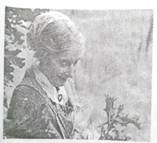This place was darker than I expected, and, in spite of the rain, dirtier. Used to the life of rural Puerto Rico(波多黎各), I had to adjust to the similarly arranged, aggressive two-dimensionality of New York. Everywhere I looked, my eyes met gray and brown straight-edged buildings with sharp corners and deep shadows. Every few blocks there was a cement(水泥) playground surrounded by chain-link fence.
A girl came out of the building next door, a jump rope in her hand, and she hopped over. “Are you Hispanic?” she asked. “No, I’m Puerto Rican.” “Same thing. Puerto Rican, Hispanic. That’s what we are here.” She skipped a tight circle, stopped abruptly, and shoved the rope in my direction. “Want a turn?”
“Sure.” I hopped on one leg, then the other. “So, if you’re Puerto Rican, they call you Hispanic?”
“Yeah. Anybody who speaks Spanish.”
I jumped a circle, as she had done, but faster. “You mean, if you speak Spanish, you’re Hispanic?”
“Well, yeah. No . . . I mean your parents have to be Puerto Rican or Cuban or something.”
“Okay, your parents are Cuban, let’s say, and you’re born here, but you don’t speak Spanish. Are you Hispanic?”
“I guess so,” she finally said. “It has to do with being from a Spanish country. I mean, you or your parents, like, even if you don’t speak Spanish, you’re Hispanic, you know?” She looked at me uncertainly. But I didn’t know. I’d always been Puerto Rican, and it hadn’t occurred to me that in New York I’d be someone else.
Later, I asked. “Are we Hispanics, Mami?” “Yes, because we speak Spanish.” “But a girl said you don’t have to speak the language to be Hispanic.” “What girl? Where did you meet a girl?” “Outside. She lives in the next building.” “Who said you could go out to the sidewalk? This isn't Puerto Rico. Something could happen to you.”
I listened to Mami’s lecture with depressed eyes and the necessary respect. But inside, I quaked. Two days in New York, and I’d already become someone else. It wasn’t hard to imagine that greater dangers lay ahead.
小题1:The first paragraph suggests that the author experienced New York as
.
| A.mysterious and unknowable |
| B.regular and depressing |
| C.orderly and appealing |
| D.impressive and dangerous |
小题2:For the author, being considered Hispanic represents
.
| A.a restriction to be overcome |
| B.an opportunity for self-redefinition |
| C.the loss of her former identity |
| D.an unavoidable result of movement to a new place |
小题3:The mother refers to “Puerto Rico” in order to impress upon the author that
.
| A.she should not miss her birthplace |
| B.New Yorkers may not like newcomers |
| C.different rules apply to life in New York |
| D.life was more restricted in Puerto Rico |
小题4:The author’s mood can best be described as
| A.angry and confused | B.fearful and uncertain |
| C.excited but lonely | D.worried and resistant |



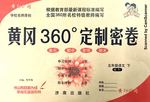 黄冈360度定制密卷系列答案
黄冈360度定制密卷系列答案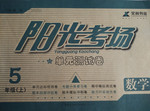 阳光考场单元测试卷系列答案
阳光考场单元测试卷系列答案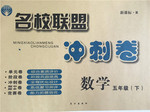 名校联盟冲刺卷系列答案
名校联盟冲刺卷系列答案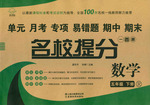 名校提分一卷通系列答案
名校提分一卷通系列答案